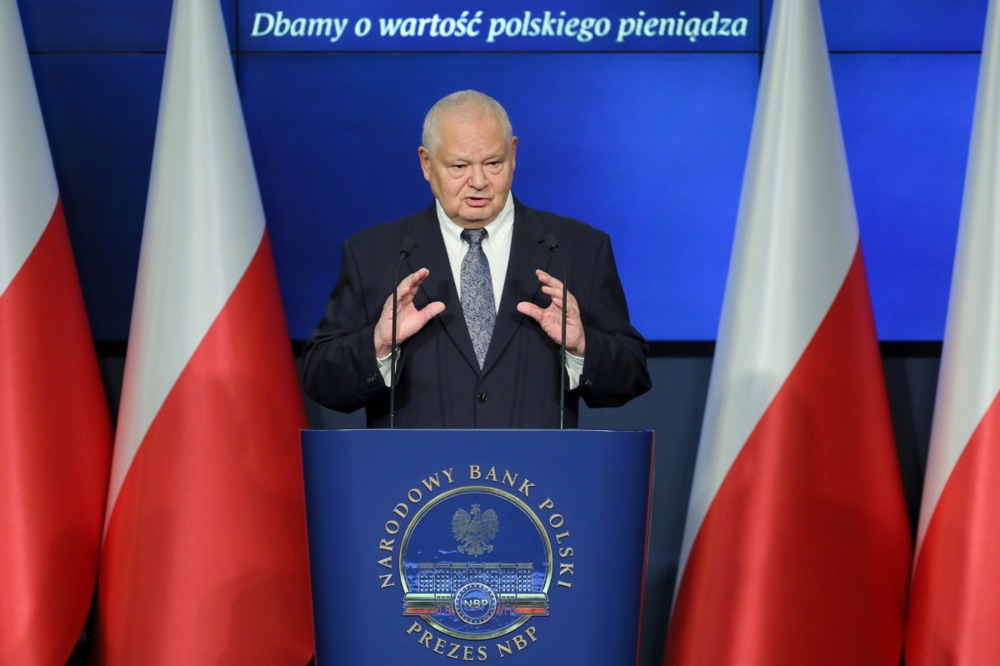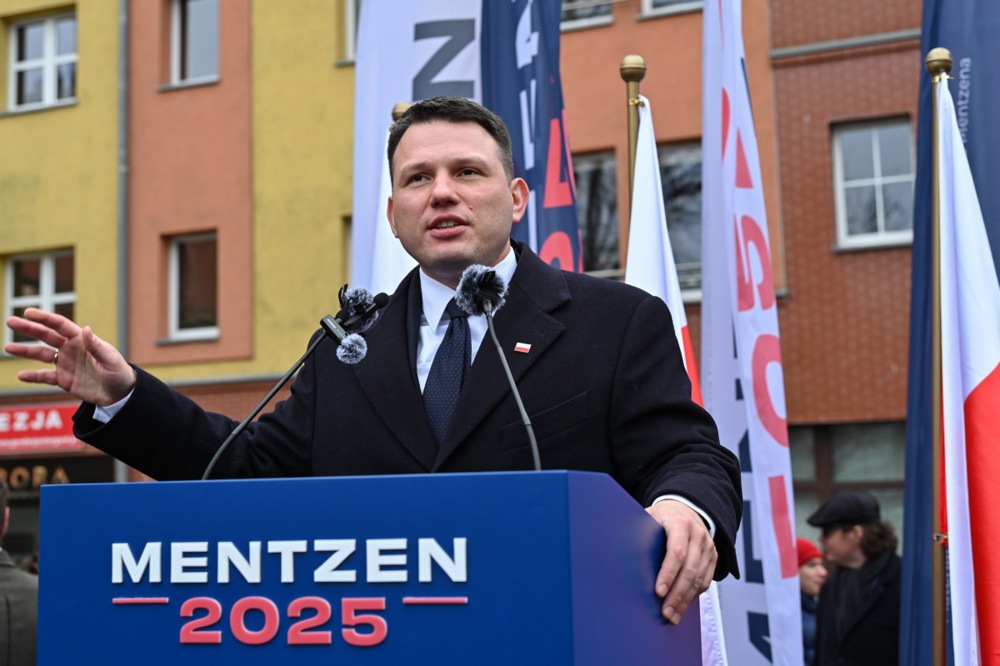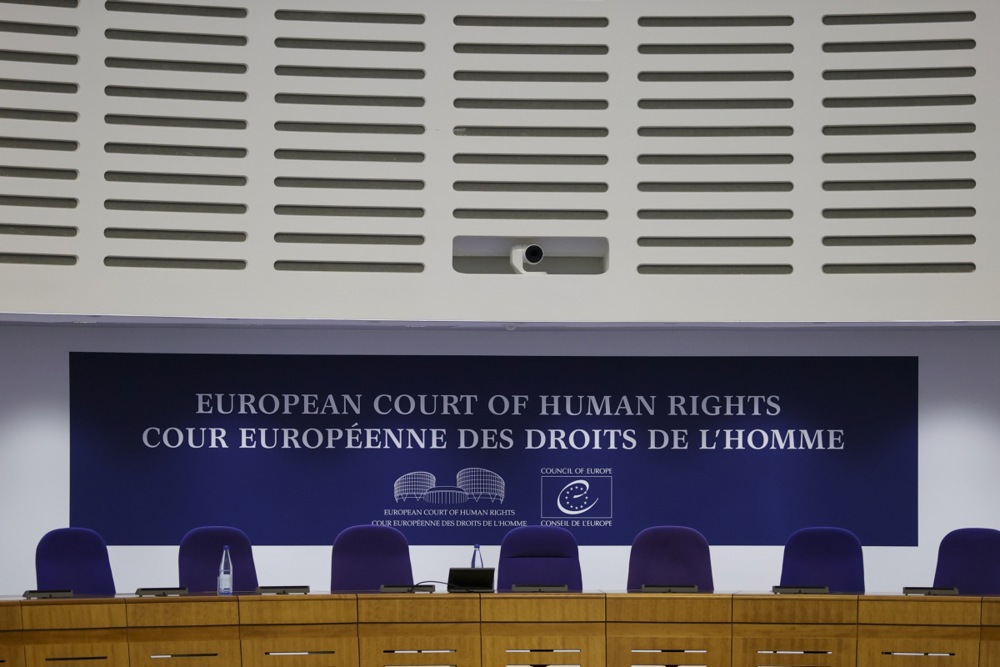According to the head of Poland’s central bank, Poland now holds 509.3 tonnes of gold, more than the gold reserves of the European Central Bank (ECB).
“This shows the stability, abundance and solvency of the Polish economy,” Adam Glapiński told reporters at a May 8 press conference after the central bank decided to cut interest rates.
Gold now accounts for 22 percent of the total reserves of the Narodowy Bank Polski (NBP), and its 509.3 tonnes of gold exceed the 506.5 tonnes of gold held by the ECB.
Poland has been speeding up its accumulation of gold in recent years. In 1996, the NBP held just 14 tonnes, which 20 years later had risen to slightly over 100.
After Glapiński became head of the NBP in 2016, Poland’s gold reserves rose to 228 tonnes by 2022 and then more than doubled to 480 tonnes by 2024. The bank’s gold is worth over €14 billion more than it paid for it.
About 20 per cent of the NBP’s gold is currently stored in Poland itself, with the remainder deposited in New York and London. The central bank ultimately aims to keep one-third of its gold in each of these three locations for greater security.
Glapiński said the bank has no plans to sell the reserves, now worth almost €45 billion, as it viewed gold as a shield against global instability as well as a cornerstone of Poland’s economic sovereignty.
Gold was the safest asset to keep in reserve, as it was free from impacts from national economic policy, resistant to crises, and retained its real value over long periods of time, Glapiński said. It carried no credit risk, and its physical substance ensured its durability and near indestructibility, he said.
“It is a symbol of stability that enhances our credibility in the eyes of investors and foreign partners,” the central bank head told a group selected to view the NBP’s gold vault. The visit was organised because, said Glapiński, “there are people who doubt the existence of the gold” that Poland moved to Warsaw in 2019.
In a quiet operation that year, the NBP repatriated 100 tonnes of gold from the Bank of England to its vaults in Warsaw. The mission, involving eight flights over several months and extensive security, ultimately moved 8,000 gold bars.
Glapiński, an ally of the opposition Conservatives (PiS), has had a fraught relationship with the current centre-left government led by Prime Minister Donald Tusk.
Tusk’s government has accused him of failing to lower interest rates and has threatened to indict Glapiński before the Tribunal of State, which is responsible for trying state officials for breaches of the constitution.
On coming to office in 2023, Tusk’s ruling coalition accused Glapiński of failing to control inflation, selling an excessive amount of bonds during the last PiS government, and making political appointments within the bank.
Any indictment against the head of the NBP would automatically cause him to be suspended, creating the need for his deputy to take over.
Glapiński appealed for protection to the ECB’s Christine Lagarde against any move to oust him. In response, the ECB issued a statement saying it would oppose any attempts to suspend a head of any central bank in the EU and would see such a move as a threat to the central bank’s autonomy.
Pressure for his ousting has eased now Glapiński has begun to cut interest rates, with inflation on a downward curve. Alongside this, his Midas touch in accumulating record gold reserves likely would not hurt, either.





